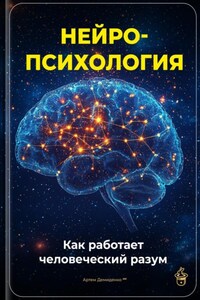Examining the Impact of Trauma on Mental Health
Trauma is a significant life event that can have a profound impact on mental health. It can result from various experiences, such as childhood abuse, natural disasters, accidents, or witnessing violence. Understanding the psychological consequences of trauma is crucial for psychologists, as it can help them provide effective interventions and support to individuals who have experienced traumatic events.
Psychological Impact of Trauma
Trauma can lead to a wide range of psychological symptoms, including:
Post-traumatic stress disorder (PTSD): This is a common reaction to trauma that involves intrusive memories, nightmares, avoidance behaviors, and hypervigilance.
Anxiety disorders: Trauma can increase the risk of developing anxiety disorders, such as generalized anxiety disorder, panic disorder, and social phobia.
Depression: Trauma can also contribute to the development of depression, characterized by persistent feelings of sadness, hopelessness, and loss of interest in activities.
Substance abuse: Individuals who have experienced trauma are more likely to engage in substance abuse as a coping mechanism.
Personality disorders: Trauma can increase the risk of developing personality disorders, such as borderline personality disorder and dissociative identity disorder.
Neurobiological Effects of Trauma
Trauma can also have significant neurobiological effects on the brain. These effects can include:
Altered brain structure: Trauma can lead to changes in the structure of the hippocampus, amygdala, and prefrontal cortex, areas involved in memory, emotion, and executive functioning.
Dysregulation of neurotransmitters: Trauma can disrupt the balance of neurotransmitters in the brain, such as serotonin, dopamine, and norepinephrine, which can lead to mood and anxiety disorders.
Increased inflammation: Trauma has been linked to increased inflammation in the brain, which can contribute to mental health problems.
Implications for Psychologists
Understanding the impact of trauma on mental health is essential for psychologists for several reasons:
Accurate diagnosis: Psychologists need to be able to accurately diagnose trauma-related disorders to provide appropriate treatment.
Effective interventions: Psychologists can use evidence-based interventions, such as trauma-focused cognitive behavioral therapy (TF-CBT) and eye movement desensitization and reprocessing (EMDR), to help individuals process and heal from trauma.
Prevention and early intervention: Psychologists can play a role in preventing trauma and providing early intervention services to reduce the risk of developing mental health problems later in life.
Conclusion
Trauma can have a significant impact on mental health, leading to a range of psychological and neurobiological effects. Psychologists play a crucial role in understanding the impact of trauma and providing effective interventions to help individuals heal and recover. By staying up-to-date on the latest research and best practices, psychologists can provide the best possible care to individuals who have experienced trauma.
WORDLIST:
Trauma – Травма
Mental health – Психическое здоровье
Post-traumatic stress disorder (PTSD) —
Посттравматическое стрессовое расстройство (ПТСР)
Anxiety disorders – Тревожные расстройства
Depression – Депрессия
Substance abuse – Злоупотребление психоактивными веществами
Personality disorders – Расстройства личности
Neurobiological – Нейробиологический
Hippocampus – Гиппокамп
Amygdala – Миндалевидное тело
Prefrontal cortex – Префронтальная кора
Neurotransmitters – Нейротрансмиттеры
Inflammation – Воспаление
Accurate diagnosis – Точная диагностика
Evidence-based interventions – Доказательные
методы лечения
Trauma-focused cognitive behavioral therapy (TF-
CBT) – Когнитивно-поведенческая терапия, ориентированная на травму (КПТТ)
Eye movement desensitization and reprocessing
(EMDR) – Десенсибилизация и переработка движением глаз (ДПДГ)
Prevention – Профилактика
Early intervention – Раннее вмешательство
Psychological impact – Психологическое воздействие
Neurobiological effects – Нейробиологические эффекты
Implications for psychologists – Значение для психологов
To experience trauma – Пережить травму
To develop mental health problems – Развивать
проблемы с психическим здоровьем
To suffer from PTSD – Страдать ПТСР
To manage anxiety disorders – Управлять тревожными расстройствами
To combat depression – Бороться с депрессией
To overcome substance abuse – Преодолевать
зависимость от психоактивных веществ
To diagnose mental health disorders —
Диагностировать психические расстройства
To provide evidence-based treatment —
Предоставлять научно обоснованное лечение
To promote resilience – Способствовать развитию
устойчивости
To facilitate recovery – Содействовать восстановлению
To reduce stigma – Уменьшать стигму
To offer support – Предлагать поддержку
To seek therapy – Обращаться за терапией
To prescribe medication – Выписывать лекарства










